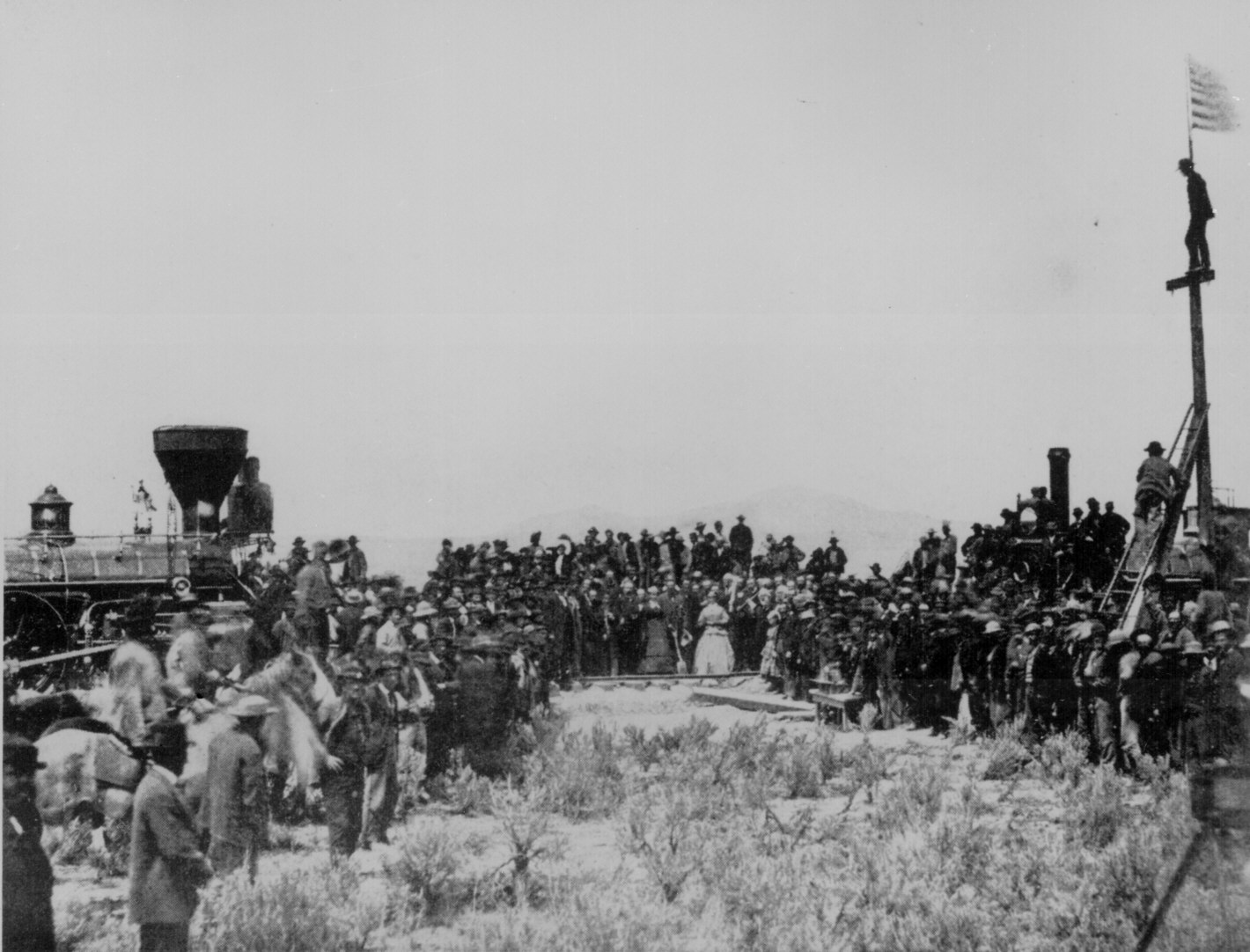BUILDING
THE AMERICAN NATION:
THE U.S., 1789-1920
|
Coursework Essay
Questions
|
|
|
QUESTIONS
FOR THE FIRST ESSAY (DUE AT THE END OF THE FIRST TERM)
- Describe and explain the impact of the French Revolution and
the Napoleonic wars on the development of the American republic
between 1789 and 1815.
- What
did "Jeffersonians" believe in?
- What
was the political significance of republican ideology in the
US between 1800 and 1860?
- To
what extent were American attitudes towards slavery (in both
the North and the South) conditioned by trans-Atlantic perspectives
and links?
- What
was the economic, political and social impact of ANY ONE of the
following events: the Panic of 1819, the Panic of 1837, the Panic
of 1857?
- What
were the social and cultural consequences of economic growth
between 1789 and 1860?
- Did
the "market revolution" accentuate or alleviate sectional
tensions and identities?
- Discuss the cultural and social effects of the invention of the
telgraph and the growth of the Post Office.
- "The
Whigs were the party of intervention; the Democrats the party
of laissez-faire." Discuss.
- Account for
the high levels of popular political participation in the antebellum
period.
- How
widespread and how effective was slave resistance in the United
States in the period 1800 to 1860?
- Describe
and explain the evolution of anti-slavery sentiment in both North
and South between 1789 and 1840.
- Was the pro-slavery
ideology developed in the South in the antebellum period the
product or the cause of northern abolitionism?
- Account for
the rise of reform movements in the Northern states in the mid-nineteenth
century.
- To what extent
was the development of the women's movement in the period up
to the Civil War retarded by the absence of a common lifestyle
and experience among American women?
- "Evangelical
reformers in the antebellum period were motivated by a desire
for social control." Discuss.
- Assess the
impact upon American society of the Second Great Awakening.
- "The
abolitionists may have been unpopular but they were not unsuccessful." Discuss.
- Did
the Missouri Controversy and the Nullification Crisis reveal
the fragility
of the American Union or its strength?
- "Native
American people in the antebellum period were less the victims
of materialism and greed than of racism and ethnocentrism." Discuss.
- Describe
and explain the political realignments of the 1850s.
- Describe
and explain the growth of anti-slavery sentiment in the North
between 1848 and 1860.
QUESTIONS
FOR THE SECOND ESSAY (DUE AT THE END OF THE SECOND TERM)
- Why did the South secede?
- Assess
the strength of anti-war feeling in the Union and the Confederacy
between 1861 and 1865.
- How and why did a war to save the Union become
a war to free the slaves?
- Why did the South lose the Civil War?
- Why
did northerners give up the effort to enforce freedmen's rights
after 1868?
- Was Reconstruction a failure?
- 'The period
from 1865 to 1896 was one of successive experiments in different
forms of white supremacy.' How complete is this characterisation
of race relations in the South after the Civil War?
- How did the
rise of industrial capitalism change American society in the
half century after the Civil War?
- How
did new immigrants to the US between 1865 and 1920 "become
white"?
- What was
the role of the federal government in promoting white settlement
in the West in the period after the Civil War?
- What
is "new" about
the "new western history"?
- "‘Populism:
a genuine mass democratic movement." Discuss.
- Why
was the "money question" such a powerful poltical issue
in the US in the 1890s?
- Assess the
effects of the depression of the 1890s.
- Why
did "trusts" become
such a bogey word in late nineteenth and early twentieth
century political discourse?
- How
accurate is it to describe American foreign policy as "imperialist" between
1898 and 1914?
- Discuss
the impact of the First World War on American politics, culture
and society between 1914 and 1920.
|
